-
IP addresses are NOT logged in this forum so there's no point asking. Please note that this forum is full of homophobes, racists, lunatics, schizophrenics & absolute nut jobs with a smattering of geniuses, Chinese chauvinists, Moderate Muslims and last but not least a couple of "know-it-alls" constantly sprouting their dubious wisdom. If you believe that content generated by unsavory characters might cause you offense PLEASE LEAVE NOW! Sammyboy Admin and Staff are not responsible for your hurt feelings should you choose to read any of the content here. The OTHER forum is HERE so please stop asking.
You are using an out of date browser. It may not display this or other websites correctly.
You should upgrade or use an alternative browser.
You should upgrade or use an alternative browser.
A Singaporean's guide to living in Thailand
- Thread starter Leongsam
- Start date
- Joined
- Aug 8, 2008
- Messages
- 28,849
- Points
- 113
- Joined
- Jul 19, 2008
- Messages
- 30,580
- Points
- 0
Time to hop to JB. It's quite similar to thailand it's like the missing link between sinkieland and thailand.
Here's wanton noodles near city SQ mall
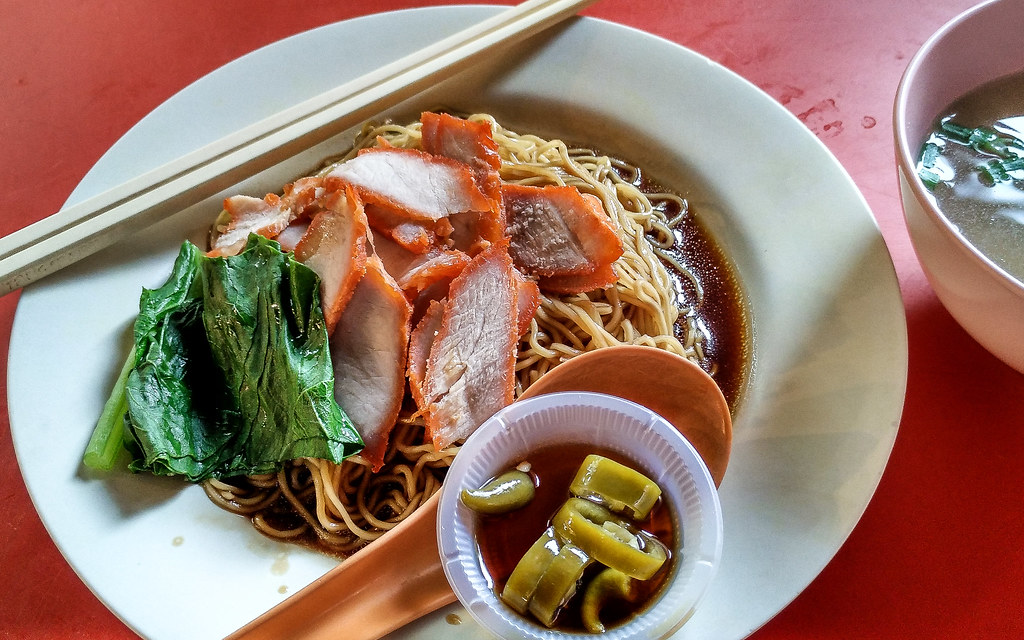
decided to go further into JB.
Bukit indah's Jusco and AEON supermarket
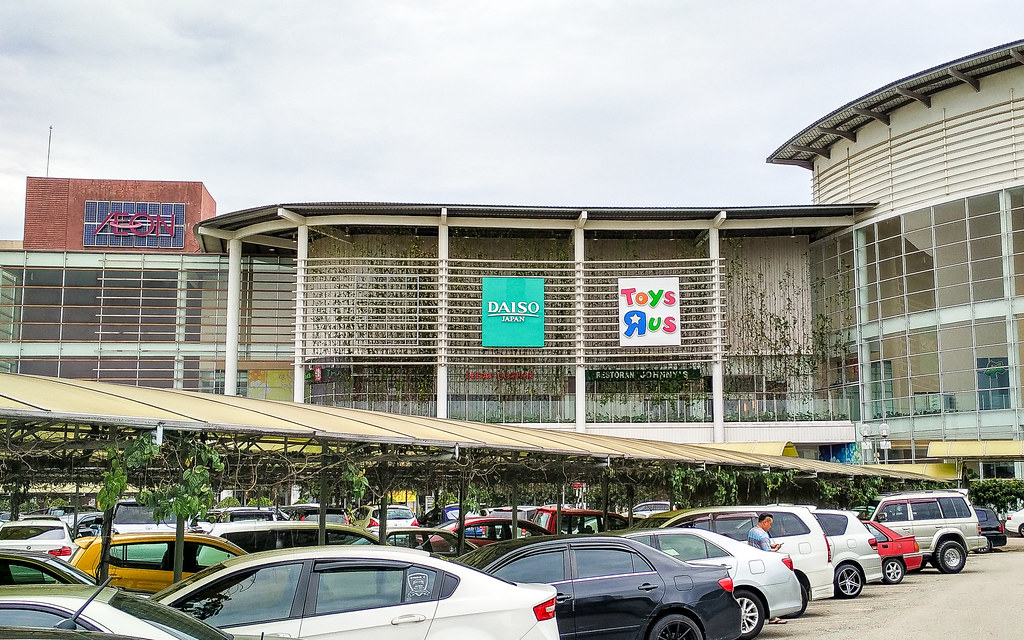
1 more
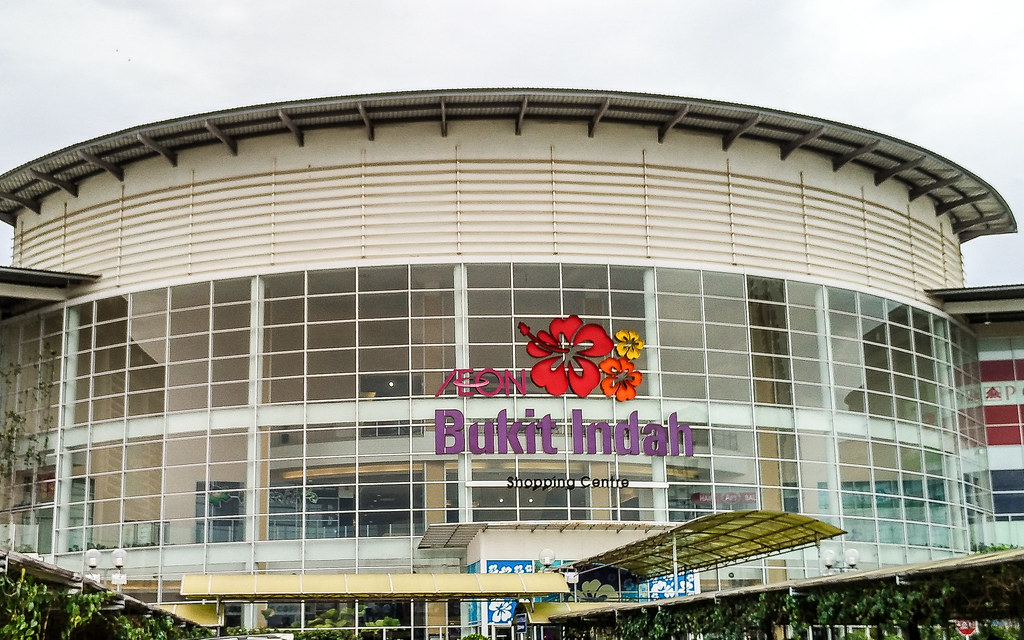
Time to eat at mian dui mian aka face to face restaurant outlet. This is a franchise in mudland.
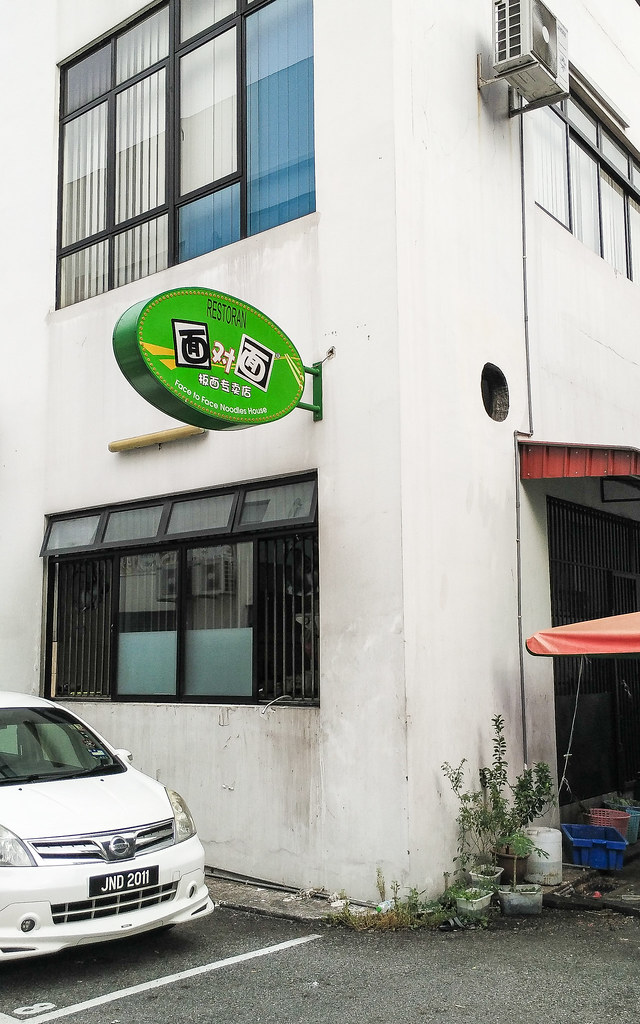
Menu
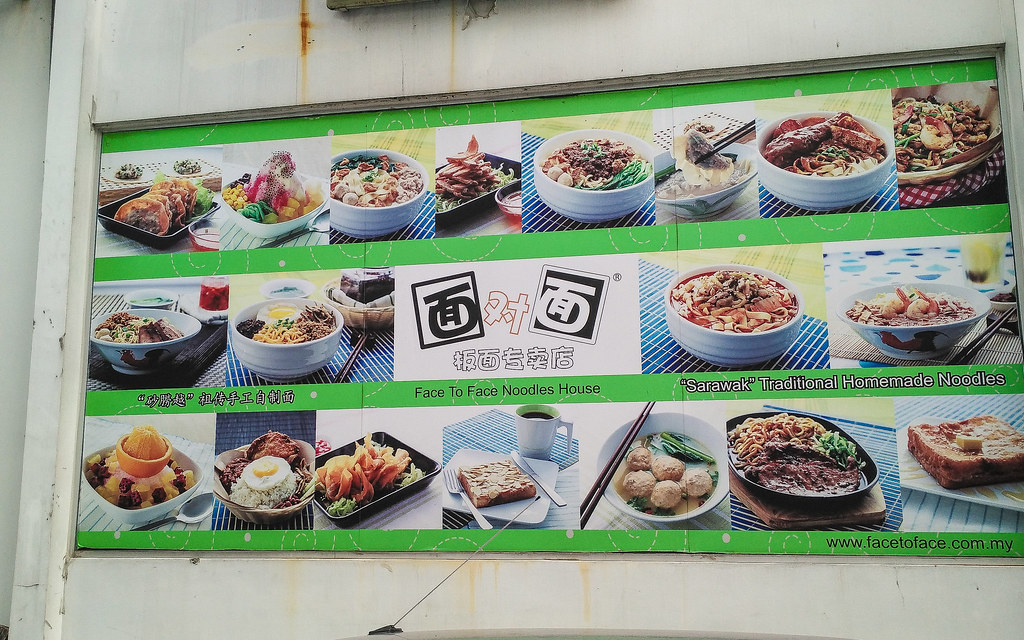
spicy rice with chicken

2nd shot

normal looking fried chicken

fried wantons

fried tofu with noodles

samosa

next it's unto jln sutera danga. This entire area has pubs,restaurants,eateries etc, small boutique hotels and the best part almost all chinese hardly any m&ds and the best very very few shit skins!
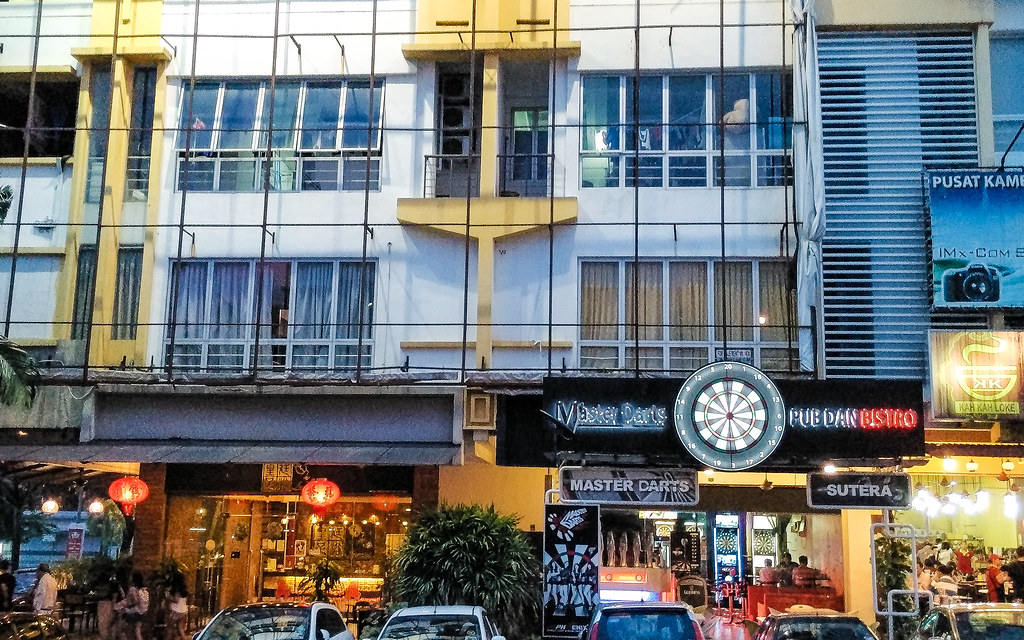
geylang lor 9 frog porridge has a branch here too
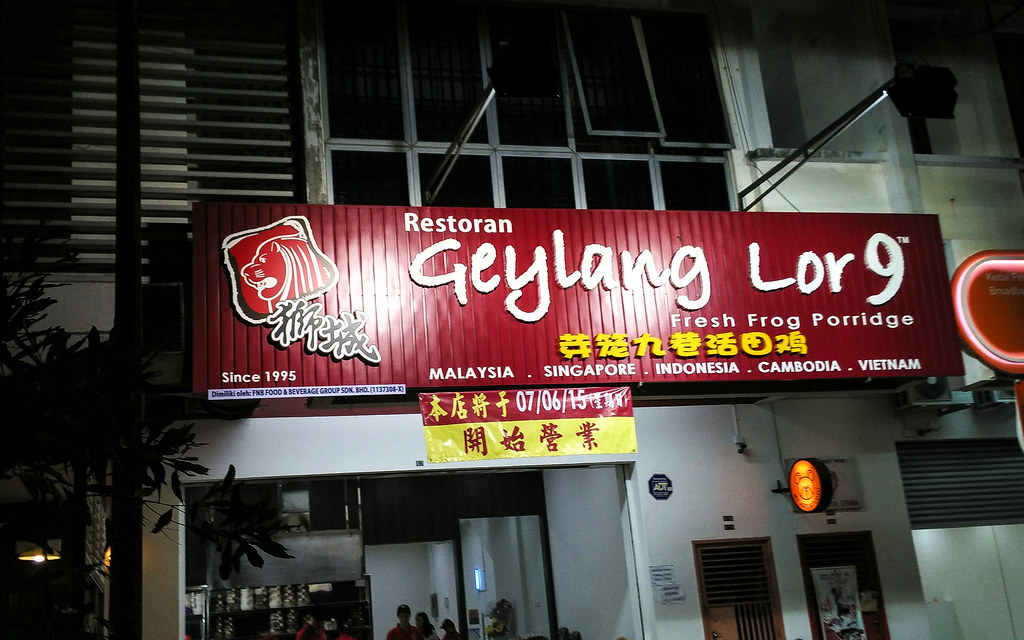
chanced upon a wedding near the chinese restaurant. The hubby is going to be chained for life but his wife is hot

chilled out at this pub with hoegarden and some asahi beer

Along with some finger foods like squid and potato wedges in mayo sauce

It was getting late by then so decided to fuck off from the place and head back to sinkieland.
Here's wanton noodles near city SQ mall

decided to go further into JB.
Bukit indah's Jusco and AEON supermarket

1 more

Time to eat at mian dui mian aka face to face restaurant outlet. This is a franchise in mudland.

Menu

spicy rice with chicken

2nd shot

normal looking fried chicken

fried wantons

fried tofu with noodles

samosa

next it's unto jln sutera danga. This entire area has pubs,restaurants,eateries etc, small boutique hotels and the best part almost all chinese hardly any m&ds and the best very very few shit skins!

geylang lor 9 frog porridge has a branch here too

chanced upon a wedding near the chinese restaurant. The hubby is going to be chained for life but his wife is hot

chilled out at this pub with hoegarden and some asahi beer

Along with some finger foods like squid and potato wedges in mayo sauce

It was getting late by then so decided to fuck off from the place and head back to sinkieland.
- Joined
- Jul 15, 2008
- Messages
- 21,204
- Points
- 113
- Joined
- Jul 15, 2008
- Messages
- 21,204
- Points
- 113
Slice of thai mango today. Peeling off skin, on migrant children's bleak future. Shades of migrant labour in the making
Migrant children face uncertain future
Students experience inequality in Thai schools,
writes Penchan Charoensuthipan Bangkok Post15 Jun 2015
The dream of 15-year-old migrant Adukayor to attend college is starting to fade due to his parents, who work in a grocery store in Samut Sakhon, struggling to even find enough money to pay for his high school education.
“I was born to a poor family and education is a weapon to fight poverty. People with a college education have better job opportunities.
“I hope for a good future for my own family,” Adukayor told a seminar in Bangkok last week which looked at ways to provide better access to education for migrant children in Thailand.
The seminar was attended by social and labour rights activists, researchers, migrant children and their parents.
Adukayor, who is from Myanmar, is among the many undocumented migrant children enrolled at Thai schools who face inequality when it comes to their educational prospects.
Under Thai law, all children, including documented migrant children, are guaranteed 15 years of free basic education at mainstream schools. But this does not cover the children of undocumented migrant workers, which means the parents need to shoulder the education fees and buy school materials themselves.
“If the government was willing to help pay for my education, my dream of becoming a doctor would come that much closer,” Adukayor said.
Patima Tungputchayakul, who represents the Labour Rights Promotion Network (LPN), is calling on the government to give Thai students and migrant children the same educational rights.
According to the Ramjitti Institute, which carries out research on children, youth and education, Thailand is home to about 250,000-300,000 undocumented migrant and stateless children.
Ms Patima said migrant children who don’t go to school tend to be forced into the illegal labour market and are more vulnerable to exploitation or even human trafficking.
“The authorities responsible for this issue need to work together to reduce the abuse of children and human trafficking,” Ms Patima said.
If the government decided to increase its efforts to help migrant children, Thailand’s standing in the US State Department’s Trafficking in Persons Report and with the European Union is likely to improve, she added. The numbers of migrant children in Thai mainstream schools has increased significantly, according to Prasit Suwan, the principal of Luang Phaet Koson Uppatham School in Samut Sakhon.
This year, 132 migrant children out of a total of 198 new students were admitted to his school, Mr Prasit said. Of this number, 93 are documented migrants and 39 undocumented.
Mr Prasit said he would like the government to set up special schools for migrant children near their homes to help lower the number of children who drop out.
A lack of data on migrant children also makes it difficult for authorities to work out how many children live in a certain area, said Pisut Weerajit, head of the Secondary Educational Service in Samut Sakhon. Disaphong Ruamrak, a teacher of Samakkee Satthatham School in Samut Sakhon, said migrant children make up 40% of the students at his school.
According to Mr Disaphong, the language barrier between teachers, students and parents leads to student drop-outs.
Ms Patima said LPN and the Thai Frozen Foods Association have launched a “say no to child labour, say yes to child education” campaign which is aimed at solving the problem of child labour and promoting the importance of education for migrant children.
Arthon Prompatphak, who represents the Thai Frozen Foods Association, said if a company belonging to the association exploits children or hires them to work in its factories, its membership would be terminated and the company would be banned from exporting its products.
Ms Patima said child labour is on the rise in Thailand because migrant children lie about their age to get work, and migrant children flee economic hardship in their home countries to find work in Thailand.
Migrant children face uncertain future
Students experience inequality in Thai schools,
writes Penchan Charoensuthipan Bangkok Post15 Jun 2015
The dream of 15-year-old migrant Adukayor to attend college is starting to fade due to his parents, who work in a grocery store in Samut Sakhon, struggling to even find enough money to pay for his high school education.
“I was born to a poor family and education is a weapon to fight poverty. People with a college education have better job opportunities.
“I hope for a good future for my own family,” Adukayor told a seminar in Bangkok last week which looked at ways to provide better access to education for migrant children in Thailand.
The seminar was attended by social and labour rights activists, researchers, migrant children and their parents.
Adukayor, who is from Myanmar, is among the many undocumented migrant children enrolled at Thai schools who face inequality when it comes to their educational prospects.
Under Thai law, all children, including documented migrant children, are guaranteed 15 years of free basic education at mainstream schools. But this does not cover the children of undocumented migrant workers, which means the parents need to shoulder the education fees and buy school materials themselves.
“If the government was willing to help pay for my education, my dream of becoming a doctor would come that much closer,” Adukayor said.
Patima Tungputchayakul, who represents the Labour Rights Promotion Network (LPN), is calling on the government to give Thai students and migrant children the same educational rights.
According to the Ramjitti Institute, which carries out research on children, youth and education, Thailand is home to about 250,000-300,000 undocumented migrant and stateless children.
Ms Patima said migrant children who don’t go to school tend to be forced into the illegal labour market and are more vulnerable to exploitation or even human trafficking.
“The authorities responsible for this issue need to work together to reduce the abuse of children and human trafficking,” Ms Patima said.
If the government decided to increase its efforts to help migrant children, Thailand’s standing in the US State Department’s Trafficking in Persons Report and with the European Union is likely to improve, she added. The numbers of migrant children in Thai mainstream schools has increased significantly, according to Prasit Suwan, the principal of Luang Phaet Koson Uppatham School in Samut Sakhon.
This year, 132 migrant children out of a total of 198 new students were admitted to his school, Mr Prasit said. Of this number, 93 are documented migrants and 39 undocumented.
Mr Prasit said he would like the government to set up special schools for migrant children near their homes to help lower the number of children who drop out.
A lack of data on migrant children also makes it difficult for authorities to work out how many children live in a certain area, said Pisut Weerajit, head of the Secondary Educational Service in Samut Sakhon. Disaphong Ruamrak, a teacher of Samakkee Satthatham School in Samut Sakhon, said migrant children make up 40% of the students at his school.
According to Mr Disaphong, the language barrier between teachers, students and parents leads to student drop-outs.
Ms Patima said LPN and the Thai Frozen Foods Association have launched a “say no to child labour, say yes to child education” campaign which is aimed at solving the problem of child labour and promoting the importance of education for migrant children.
Arthon Prompatphak, who represents the Thai Frozen Foods Association, said if a company belonging to the association exploits children or hires them to work in its factories, its membership would be terminated and the company would be banned from exporting its products.
Ms Patima said child labour is on the rise in Thailand because migrant children lie about their age to get work, and migrant children flee economic hardship in their home countries to find work in Thailand.
- Joined
- Jul 15, 2008
- Messages
- 21,204
- Points
- 113
Slice of thai durian today :p
KING OF FRUITS
Govt rushes to pacify Hong Kong over concern on tumeric-soaked durian
PETCHANET PRATRUANGKRAI
THE NATION June 16, 2015 1:00 am
THE COMMERCE Ministry will help the Agriculture Ministry to clarify health concerns Hong Kong officials have about the use of the turmeric liquid in exported durian.
The move comes as the ministries warned Thai exporters and farmers not to use any substances that could affect consumer confidence.
Duangkamol Jiambutr, the Commerce Ministry spokeswoman, said the Thai Trade Office in Hong Kong would inform Hong Kong's Food and Environmental Hygience Department (FEHD) that turmeric did not harm people's health so there was no need to ban Thai durian imports.
In a bid to prevent further problems, the ministry will also meet with relevant government agencies and the Thai Fruits Exporters Association to discuss the import fruit regulations for a variety of markets.
A recent media report stated that the FEHD had accused Thai durian farmers and exporters of soaking durians in turmeric, a yellow liquid, and other chemicals to accelerate ripening.
The FEHD warned them not to use turmeric or any substance to accelerate ripening or Hong Kong would ban durian imports from Thailand.
Duangkamol said the government would stringently control farmers and exporters who used a chemical substance to hasten the ripening of durian not to use more than two parts per million.
"Farmers and exporters have to be aware of this warning to not use any substance that is forbidden by import countries or else it will affect the reputation of Thai fruit and affect the country's exports," she said.
The Commerce Ministry also urged farmers and traders to comply with relevant legal requirements, follow the Good Manufacturing Practice and use permitted food additives only in an appropriate manner.
Hong Kong is Thailand's third largest market for durian exports after China and Vietnam. In the first four months of this year, durian exports to Hong Kong were worth Bt1.21 billion.
Largest market for Thai durian
Last year, Hong Kong was the largest market for Thai durian with a market worth of Bt6.56 billion.
Peeled durian is sold in Hong Kong for a healthy HK$100 per kilogram (Bt435), up from $50 last year.
During the current harvest seasons, the total durian output is expected to reach 639,960 tonnes, of which 338,515 tonnes would come from the East (May-June harvest) and 275,960 tonnes from the South (July-September), with the remaining amount coming from other provinces such as Uttaradit and Si Sa Ket.
Previously, there was a report on the social media application wechat in Shanghai that accused durian farmers of using turmeric and other chemicals, resulting in consumers concerns and forcing the Thai trade office in Shanghai to clarify the situation.
Local farmers use turmeric to better protect durian when shipped.

KING OF FRUITS
Govt rushes to pacify Hong Kong over concern on tumeric-soaked durian
PETCHANET PRATRUANGKRAI
THE NATION June 16, 2015 1:00 am
THE COMMERCE Ministry will help the Agriculture Ministry to clarify health concerns Hong Kong officials have about the use of the turmeric liquid in exported durian.
The move comes as the ministries warned Thai exporters and farmers not to use any substances that could affect consumer confidence.
Duangkamol Jiambutr, the Commerce Ministry spokeswoman, said the Thai Trade Office in Hong Kong would inform Hong Kong's Food and Environmental Hygience Department (FEHD) that turmeric did not harm people's health so there was no need to ban Thai durian imports.
In a bid to prevent further problems, the ministry will also meet with relevant government agencies and the Thai Fruits Exporters Association to discuss the import fruit regulations for a variety of markets.
A recent media report stated that the FEHD had accused Thai durian farmers and exporters of soaking durians in turmeric, a yellow liquid, and other chemicals to accelerate ripening.
The FEHD warned them not to use turmeric or any substance to accelerate ripening or Hong Kong would ban durian imports from Thailand.
Duangkamol said the government would stringently control farmers and exporters who used a chemical substance to hasten the ripening of durian not to use more than two parts per million.
"Farmers and exporters have to be aware of this warning to not use any substance that is forbidden by import countries or else it will affect the reputation of Thai fruit and affect the country's exports," she said.
The Commerce Ministry also urged farmers and traders to comply with relevant legal requirements, follow the Good Manufacturing Practice and use permitted food additives only in an appropriate manner.
Hong Kong is Thailand's third largest market for durian exports after China and Vietnam. In the first four months of this year, durian exports to Hong Kong were worth Bt1.21 billion.
Largest market for Thai durian
Last year, Hong Kong was the largest market for Thai durian with a market worth of Bt6.56 billion.
Peeled durian is sold in Hong Kong for a healthy HK$100 per kilogram (Bt435), up from $50 last year.
During the current harvest seasons, the total durian output is expected to reach 639,960 tonnes, of which 338,515 tonnes would come from the East (May-June harvest) and 275,960 tonnes from the South (July-September), with the remaining amount coming from other provinces such as Uttaradit and Si Sa Ket.
Previously, there was a report on the social media application wechat in Shanghai that accused durian farmers of using turmeric and other chemicals, resulting in consumers concerns and forcing the Thai trade office in Shanghai to clarify the situation.
Local farmers use turmeric to better protect durian when shipped.

- Joined
- Jul 15, 2008
- Messages
- 21,204
- Points
- 113
Interesting perspective on labour productivity, with example of common masseuse job dotted all over in LOS. And minimum wage differentiated in provinces
STREETWISE
Workers' tales shed light on the PRODUCTIVITY ISSUE
June 16, 2015 1:00 am. http://www.nationmultimedia.com/opi...light-on-the-PRODUCTIVITY-ISSUE-30262400.html
Once in a while, workers are told they must increase their productivity if they want increased rewards. However, that simple equation doesn't apply to all workers. Masseuses, for instance, need to do a lot more than increase their productivity, in order to receive higher pay.
Traditional Thai massage shops are everywhere, offering a significant number of jobs. But only the lucky few masseuses will land employment in five-star hotels, where pay and tips are handsome.
The hundreds of masseuses at one of Bangkok's biggest chains, with more than 15 outlets, have to work six days a week, eight hours per day. On a good day, a masseuse here will treat four customers for two hours each, and earn half of the Bt500 each treatment costs - a total of Bt1,000. But on days when no customers show up, they get nothing. The chain does not offer minimum pay, let alone other benefits.
Masseuses are often keen to find a job at shops in tourist destinations, hoping for big tips from foreign visitors. In Bangkok, massage therapists wearied by the daily eight-hour grind welcome tourists since they can seldom tell the difference between a high-quality massage and a poor one, and tip well either way.
To gain a competitive edge, some standalone shops use guaranteed minimum pay to attract quality masseuses. One such shop in Bangkok has just hooked a masseuse from Kanchanaburi.
New here, she is now ready to trade anything for higher pay. Away from home, she is having to rent a place to stay. And she's feeling the pinch in other ways too. In Kanchanaburi, lunch was just Bt30, compared to Bt50 in Bangkok. Travel costs are an added new drain on her finances.
Another masseuse said that young people these days enter the business with a single dream - to land a job in a foreign country that pays more. In Hokkaido, Japan, an hour of traditional massage typically costs 4,000 yen, or about Bt1,100. In London, the price is 50 pounds - about Bt2,550. If the masseuse gets half, that's significantly more than the pay at most massage shops in Thailand. But chasing that dream requires investment and skills. While many of the young dreamers can't match the older masseuses in terms of skill, they have the desire and ability to finance their move abroad.
The tales from these masseuses reveal that pay does not rely solely on productivity, especially in the service sector.
In other sectors, where the minimum wage is more strictly adhered to, workers are at the mercy of the tri-partite wage committee, which reviews the wage every year. Millions were delighted when the minimum daily wage jumped to Bt300 nationwide on January 1, 2013. It was more than many had been expecting.
The Yingluck Shinawatra government was heavily criticised for the decision, which replaced a wage that differed depending on location with a flat rate. In more economically deprived provinces, like Chaiyaphum in the Northeast, the wage had been about Bt160. In thriving provinces like Phuket, it was Bt221.
But workers' happiness at the hike was short-lived. As it turned out, not all enjoyed the benefits - particularly those living in border provinces where cheap labour was abundant for unskilled jobs. Activists in Tak, bordering Myanmar, have complained that migrants there are being paid below the Bt300 rate. That's hardly a surprise given that there are Thai workers in Tak who still don't get the minimum. Meanwhile, workers who are being paid the minimum mark are finding the hike hasn't matched the increased cost of living.
The political instability in 2013 brought lower economic growth, which makes it difficult to evaluate the benefits or otherwise of the higher wage. The economic disruption and drop in foreign visitors led to meagre growth of 1.8 per cent.
The higher wage was expected to encourage a boost in productivity. But in the absence of strategic moves in relevant areas, that hasn't materialised. Training courses are available, but they don't cover the 10 million-plus workers in question. Not all employers welcome the training courses, since they see no short-term concrete gains. In some jobs, technology can help to boost productivity, but that requires investment.
Despite the Labour Ministry's directive, many employees are not paid according to their skills. From January to September last year, 23,750 workers - or 2 per cent of 1.17 million workers at 33,747 workplaces - were mistreated pay-wise, according to the latest ministry data. Some workers managed to pass skill tests to earn above the minimum wage. Some employers do not want to pay it, but refusal to do so is against the law. The wage committee in January resolved that the minimum pay scale for skilled labour is backfiring. Employers wre tending not to keep those workers who had higher skills, so as to avoid breaking the law if they could not pay more. Failing to win higher pay, workers had little incentive to improve their skills. So the wage committee agreed that the legal penalties attached to the pay scale should be scrapped.
Two years have passed and it remains just as difficult to determine whether the higher minimum wage has truly benefited either workers, their employers or the economy.
But with the cost of living already increased and civil servants having been granted a pay hike, the minimum wage can't be reversed. Like it or not, the Bt300 scale is here to stay. What matters now is how we handle future increases. It's not healthy for any economy if workers don't have the incentive of higher pay in return for improved productivity.
STREETWISE
Workers' tales shed light on the PRODUCTIVITY ISSUE
June 16, 2015 1:00 am. http://www.nationmultimedia.com/opi...light-on-the-PRODUCTIVITY-ISSUE-30262400.html
Once in a while, workers are told they must increase their productivity if they want increased rewards. However, that simple equation doesn't apply to all workers. Masseuses, for instance, need to do a lot more than increase their productivity, in order to receive higher pay.
Traditional Thai massage shops are everywhere, offering a significant number of jobs. But only the lucky few masseuses will land employment in five-star hotels, where pay and tips are handsome.
The hundreds of masseuses at one of Bangkok's biggest chains, with more than 15 outlets, have to work six days a week, eight hours per day. On a good day, a masseuse here will treat four customers for two hours each, and earn half of the Bt500 each treatment costs - a total of Bt1,000. But on days when no customers show up, they get nothing. The chain does not offer minimum pay, let alone other benefits.
Masseuses are often keen to find a job at shops in tourist destinations, hoping for big tips from foreign visitors. In Bangkok, massage therapists wearied by the daily eight-hour grind welcome tourists since they can seldom tell the difference between a high-quality massage and a poor one, and tip well either way.
To gain a competitive edge, some standalone shops use guaranteed minimum pay to attract quality masseuses. One such shop in Bangkok has just hooked a masseuse from Kanchanaburi.
New here, she is now ready to trade anything for higher pay. Away from home, she is having to rent a place to stay. And she's feeling the pinch in other ways too. In Kanchanaburi, lunch was just Bt30, compared to Bt50 in Bangkok. Travel costs are an added new drain on her finances.
Another masseuse said that young people these days enter the business with a single dream - to land a job in a foreign country that pays more. In Hokkaido, Japan, an hour of traditional massage typically costs 4,000 yen, or about Bt1,100. In London, the price is 50 pounds - about Bt2,550. If the masseuse gets half, that's significantly more than the pay at most massage shops in Thailand. But chasing that dream requires investment and skills. While many of the young dreamers can't match the older masseuses in terms of skill, they have the desire and ability to finance their move abroad.
The tales from these masseuses reveal that pay does not rely solely on productivity, especially in the service sector.
In other sectors, where the minimum wage is more strictly adhered to, workers are at the mercy of the tri-partite wage committee, which reviews the wage every year. Millions were delighted when the minimum daily wage jumped to Bt300 nationwide on January 1, 2013. It was more than many had been expecting.
The Yingluck Shinawatra government was heavily criticised for the decision, which replaced a wage that differed depending on location with a flat rate. In more economically deprived provinces, like Chaiyaphum in the Northeast, the wage had been about Bt160. In thriving provinces like Phuket, it was Bt221.
But workers' happiness at the hike was short-lived. As it turned out, not all enjoyed the benefits - particularly those living in border provinces where cheap labour was abundant for unskilled jobs. Activists in Tak, bordering Myanmar, have complained that migrants there are being paid below the Bt300 rate. That's hardly a surprise given that there are Thai workers in Tak who still don't get the minimum. Meanwhile, workers who are being paid the minimum mark are finding the hike hasn't matched the increased cost of living.
The political instability in 2013 brought lower economic growth, which makes it difficult to evaluate the benefits or otherwise of the higher wage. The economic disruption and drop in foreign visitors led to meagre growth of 1.8 per cent.
The higher wage was expected to encourage a boost in productivity. But in the absence of strategic moves in relevant areas, that hasn't materialised. Training courses are available, but they don't cover the 10 million-plus workers in question. Not all employers welcome the training courses, since they see no short-term concrete gains. In some jobs, technology can help to boost productivity, but that requires investment.
Despite the Labour Ministry's directive, many employees are not paid according to their skills. From January to September last year, 23,750 workers - or 2 per cent of 1.17 million workers at 33,747 workplaces - were mistreated pay-wise, according to the latest ministry data. Some workers managed to pass skill tests to earn above the minimum wage. Some employers do not want to pay it, but refusal to do so is against the law. The wage committee in January resolved that the minimum pay scale for skilled labour is backfiring. Employers wre tending not to keep those workers who had higher skills, so as to avoid breaking the law if they could not pay more. Failing to win higher pay, workers had little incentive to improve their skills. So the wage committee agreed that the legal penalties attached to the pay scale should be scrapped.
Two years have passed and it remains just as difficult to determine whether the higher minimum wage has truly benefited either workers, their employers or the economy.
But with the cost of living already increased and civil servants having been granted a pay hike, the minimum wage can't be reversed. Like it or not, the Bt300 scale is here to stay. What matters now is how we handle future increases. It's not healthy for any economy if workers don't have the incentive of higher pay in return for improved productivity.
- Joined
- Aug 8, 2008
- Messages
- 28,849
- Points
- 113
Interesting perspective on labour productivity, with example of common masseuse job dotted all over in LOS. And minimum wage differentiated in provinces
STREETWISE
Workers' tales shed light on the PRODUCTIVITY ISSUE
June 16, 2015 1:00 am. http://www.nationmultimedia.com/opi...light-on-the-PRODUCTIVITY-ISSUE-30262400.html
Just hired a new maid a month ago. Currently upgrading her sending her to driving school, once she get her driving license will increase her pay 20%. Upgrading comes with more responsibilities (I mean more work so got to pay more).
- Joined
- Jul 15, 2008
- Messages
- 21,204
- Points
- 113
Fair dinkum, you're an enlightened employer (unlike the human traffickers :p)..upgrading her sending her to driving school...increase her pay 20%. Upgrading comes with more responsibilities (I mean more work so got to pay more).
- Joined
- Jul 15, 2008
- Messages
- 21,204
- Points
- 113
Lure of money :p
CASINO
Police chief backs casinos, PM 'not opposed' to idea
THE NATION June 18, 2015 1:00 am
NRC member Sungsidh says Singapore has earnt a huge sum from its casinos and Thailand could reap even more
Police chief General Somyot Poompanmoung yesterday backed a controversial proposal to permit legal casinos, saying he would open a website to sound out public opinions on the issue.
"I am ready to declare myself as the first national police chief to push for [legal] casinos," he said, adding that he would organise a press conference to clarify his position on the issue - one month before his retirement at the end of September.
Somyot said new casinos should be open to registered members who reside in different areas. Registered residents in the South, for example, could be allowed to enter a casino in Chiang Mai.
Under a proposal unveiled earlier this week by some members of the National Reform Council (NRC), possible sites for casinos include Phuket, Ubon Ratchathani, and Koh Larn, which is situated off Pattaya in Chon Buri.
"I am not afraid of being slammed by groups of people and members of society [that are against casinos], as I adhere to reality and well realise the Thai people's gambling habit. Illegal and underground gambling activities flourish with [or without] legal casinos," Somyot said.
NRC member Assoc Prof Sungsidh Piriyarangsan, an academic who has studied the legalisation of gambling and police corruption stemming from it, said casinos could generate up to Bt400 billion in the first year.
And he argued that legal casinos in Thailand would surely outperform those in Singapore - which has seen around S$190 billion (Bt4.75 trillion) generated each year - given the Kingdom's greater number of tourist attractions, plus its abundance and variety of food and other natural resources.
Casinos in Thailand would come later than those elsewhere, but operating them after other nations would present an advantage in that weak points in countries that had run them for some time could be studied and corrected, said Sungsidh, who is dean of the College Of Social Innovation at Rangsit University.
Citing Singapore's case, he said the island-state's annual visitor numbers had increased to 15 million in 2014 from 9.7 million when the casinos opened in 2009, hotel reservations had risen 24 per cent and the room occupancy rate by 10 per cent, while 30,000 jobs had been created in and around the casino sector.
Singapore has used casinos as supplementary activities for event participants to support its tourism and event industries, he said. Other facilities capable of supporting casino operations were large-scale convention centres with up to 30,000 seats in total, more tourist attractions, hotels, shopping areas, entertainment venues and restaurants that could be accessed by electric trains.
He said the first Thai casinos should be opened in Pattaya, as it already has some of these support facilities, while others have been proposed for the area.
The minimum age of casino entrants should be 30, and they should be able to prove a minimum monthly salary of Bt300,000. He said they should also pay a high cover charge for each visit.
A group of NRC members who raised the legal-casino issue said yesterday that Prime Minister Prayut Chan-o-cha and NRC president Thienchay Kiranandana were not openly opposed.
They quoted Prayut as saying "the government has no stance on the issue and the public could voice their views on it", and Thienchay as saying "the legalisation of gambling is not on the NRC's current agenda".
Meanwhile, The Moral Centre, a public body, expressed concern over the issue, saying lax enforcement of restrictions against unregistered gamblers would worsen social and crime-related problems.
CASINO
Police chief backs casinos, PM 'not opposed' to idea
THE NATION June 18, 2015 1:00 am
NRC member Sungsidh says Singapore has earnt a huge sum from its casinos and Thailand could reap even more
Police chief General Somyot Poompanmoung yesterday backed a controversial proposal to permit legal casinos, saying he would open a website to sound out public opinions on the issue.
"I am ready to declare myself as the first national police chief to push for [legal] casinos," he said, adding that he would organise a press conference to clarify his position on the issue - one month before his retirement at the end of September.
Somyot said new casinos should be open to registered members who reside in different areas. Registered residents in the South, for example, could be allowed to enter a casino in Chiang Mai.
Under a proposal unveiled earlier this week by some members of the National Reform Council (NRC), possible sites for casinos include Phuket, Ubon Ratchathani, and Koh Larn, which is situated off Pattaya in Chon Buri.
"I am not afraid of being slammed by groups of people and members of society [that are against casinos], as I adhere to reality and well realise the Thai people's gambling habit. Illegal and underground gambling activities flourish with [or without] legal casinos," Somyot said.
NRC member Assoc Prof Sungsidh Piriyarangsan, an academic who has studied the legalisation of gambling and police corruption stemming from it, said casinos could generate up to Bt400 billion in the first year.
And he argued that legal casinos in Thailand would surely outperform those in Singapore - which has seen around S$190 billion (Bt4.75 trillion) generated each year - given the Kingdom's greater number of tourist attractions, plus its abundance and variety of food and other natural resources.
Casinos in Thailand would come later than those elsewhere, but operating them after other nations would present an advantage in that weak points in countries that had run them for some time could be studied and corrected, said Sungsidh, who is dean of the College Of Social Innovation at Rangsit University.
Citing Singapore's case, he said the island-state's annual visitor numbers had increased to 15 million in 2014 from 9.7 million when the casinos opened in 2009, hotel reservations had risen 24 per cent and the room occupancy rate by 10 per cent, while 30,000 jobs had been created in and around the casino sector.
Singapore has used casinos as supplementary activities for event participants to support its tourism and event industries, he said. Other facilities capable of supporting casino operations were large-scale convention centres with up to 30,000 seats in total, more tourist attractions, hotels, shopping areas, entertainment venues and restaurants that could be accessed by electric trains.
He said the first Thai casinos should be opened in Pattaya, as it already has some of these support facilities, while others have been proposed for the area.
The minimum age of casino entrants should be 30, and they should be able to prove a minimum monthly salary of Bt300,000. He said they should also pay a high cover charge for each visit.
A group of NRC members who raised the legal-casino issue said yesterday that Prime Minister Prayut Chan-o-cha and NRC president Thienchay Kiranandana were not openly opposed.
They quoted Prayut as saying "the government has no stance on the issue and the public could voice their views on it", and Thienchay as saying "the legalisation of gambling is not on the NRC's current agenda".
Meanwhile, The Moral Centre, a public body, expressed concern over the issue, saying lax enforcement of restrictions against unregistered gamblers would worsen social and crime-related problems.
- Joined
- Jul 15, 2008
- Messages
- 21,204
- Points
- 113
Prajin admits Thai aviation fails ICAO safety test
Airlines fear curbs from more countries
Bangkok Post19 Jun 2015AMORNRAT MAHITTHIROOK

Transport Minister Prajin Juntong acknowledged government efforts to address aviation safety concerns raised by the International Civil Aviation Organisation (ICAO) had failed after the UN-based agency red flagged Thailand on its website yesterday.
“We have to admit that we failed the test,” ACM Prajin said, referring to the ICAO flagging Thailand for “significant safety concerns”. “We now have to look into what should be done to address it.”
The Department of Civil Aviation (DCA), which plays a key role in regulating aviation businesses and granting Air Operator Certificates (AOC), failed to meet aviation safety standards, according to the ICAO’s audit of the department’s performance earlier this year.
The ICAO gave a 90-day deadline for Thai authorities to tackle the problems, which ended yesterday.
Authorities had failed to address the AOC issues within that deadline, and so they had failed the ICAO safety test, ACM Pajin said.
Prime Minister Prayut Chan-o-cha had been updated on the situation, he said.
Relevant agencies will meet on Monday and a press briefing on the issue will be held later, ACM Prajin said.
The minister said there may have been miscommunication between him and Deputy Transport Minister Arkhom Termpittayapaisith, who had reported to him that the ICAO would not publicise the audit result.
Mr Arkhom had led a ministry delegation to meet ICAO officials in Montreal, Canada, on Monday.
Commenting about possible bans on Thai-registered carriers following the redflag announcement, ACM Prajin said this was a decision for each individual country, though most of them tend to take ICAO audits into account.
The impact was unlikely to be immediate, he said, as countries would need to make notifications of any bans in advance.
Meanwhile, the European Aviation Safety Agency (EASA) has informed Thai authorities it will make an announcement on the issue next Thursday, the minister said.
“If any countries take steps to ban us, we may not have the power to negotiate on it. We have to accept the situation and move ahead to tackle the problems.”
He said plans to address the ICAO’s concerns had been completed.
DCA restructuring plans will also be sent to the National Council for Peace and Order (NCPO) for approval, he said.
ACM Prajin said he had informed Thairegistered carriers to be ready for a backlash from other countries following the ICAO announcement.
He said he felt pressured by the problem but vowed to carry on trying to solve it.
Asked whether Thai officials would need to visit other countries to explain the issue, the minister said there was no immediate need until ramifications had been felt.
A DCA source said although progress had been made on tackling concerns raised by the ICAO, such as producing safety guideline manuals and recruiting more staff, the process was still incomplete, particularly the AOC issuing process, which would take more time.
It was important now to keep a close watch on the upcoming EASA announcement and the DCA audit results of the US Federal Aviation Administration (FAA) slated for July 13, the source said.
The ICAO announcement was unlikely to prompt the EASA or FAA to slap bans on Thai flights since the country’s carriers maintained high standards, the source said.
Airline Operators Committee chairman Louis Moser said the ICAO audit results had been made public in line with its required procedures. He said it was possible other aviation regulators would send people to examine DCA and Thai aviation standards.
Tassapon Bijleveld, chief executive of Thai AirAsia, yesterday denied reports that his airline was ordered to suspend flights to Japan within 15 days following the ICAO’s announcement. He said the reports were unfounded and the airline’s flights to Japan were still operating as normal.
The red flag slapped by the International Civil Aviation Organization (ICAO) on Thailand’s aviation safety supervision yesterday may result in a further backlash to the industry.
It could mean several more countries will be under pressure to put flights operated by Thai-registered airlines to their airports under closer scrutiny or even curb them, Thai officials and airline executives said yesterday.
“What we’re gravely concerned about is more countries coming to clip our wings since our image is made worse by the red flag,” a senior executive of one Thai airline operating on international routes told the Bangkok Post.
There is a risk the Japan Civil Aviation Bureau may lift its reprieve, now set to end next month, that allows airlines such as Thai AirAsia X to operate flights to Sapporo.
Similarly, South Korea and China could tighten restrictions on Thai airlines’ flights to their airports beyond regular scheduled services that they allowed before the ICAO put out its yellow card.
The UN agency in charge of global aviation standards yesterday publicly flashed a red flag at Thailand after the country failed to meet the deadline for corrective action.
Thailand is one of 13 countries including the likes of Botswana, Haiti and Angola to be red-flagged by the ICAO among 187 whose aviation standards were audited.
The move came as a complete surprise to the Thai aviation industry, with Transport Minister Prajin Juntong suggesting on Tuesday that the ICAO had agreed not to post any information over Thailand’s shortcomings on its public website.
He said then that the ICAO was satisfied with progress on “corrective action plans” made so far by Thailand to address “significant safety concerns” raised by the agency.
Thai officials and airline executives with knowledge of the issues told the Bangkok Post that the misleading information given by the minister was due to miscommunication and misinterpretation of the statement given by top ICAO officials to a Thai delegation, led by Deputy Transport Minister Arkhom Termpittayapaisith, who visited the ICAO’s Montreal office just ahead of the deadline to seek reprieve.
However, the ICAO’s concerns were displayed online yesterday in compliance with its guidelines when Thailand failed to beat the deadline for satisfactory correction.
The agency is required to reveal the information publicly 90 days after a state is unable to correct flaws identified in its audit.
The ICAO showed a yellow card to Thailand after an audit in January when the Civil Aviation Department scored very poorly.
It expressed grave concerns about lapses in personnel licensing and training, airworthiness assessment and certification, airline operations oversight and issues involving the granting of operator certificates to airlines.
Charamporn Jotikasthira, Thai Airways International president, sought to downplay the possible impact of the red flag to reassure the travelling public the national airline operates with the highest safety standards in all operational areas.
“Significant safety concerns do not necessarily indicate a particular safety deficiency in the air navigation service providers, airlines, aircraft or airports, but rather indicates that the state is not providing sufficient safety oversight to ensure the effective implementation of applicable ICAO standards,” he said, quoting the ICAO website.
Alan Polivnick, of international law firm Watson Farley & Williams (Thailand), said the red flag did not appear to be a formal downgrade to Category 2, which would severely affect Thai airlines operating to foreign countries, but a lesser sanction.
Airlines fear curbs from more countries
Bangkok Post19 Jun 2015AMORNRAT MAHITTHIROOK

Transport Minister Prajin Juntong acknowledged government efforts to address aviation safety concerns raised by the International Civil Aviation Organisation (ICAO) had failed after the UN-based agency red flagged Thailand on its website yesterday.
“We have to admit that we failed the test,” ACM Prajin said, referring to the ICAO flagging Thailand for “significant safety concerns”. “We now have to look into what should be done to address it.”
The Department of Civil Aviation (DCA), which plays a key role in regulating aviation businesses and granting Air Operator Certificates (AOC), failed to meet aviation safety standards, according to the ICAO’s audit of the department’s performance earlier this year.
The ICAO gave a 90-day deadline for Thai authorities to tackle the problems, which ended yesterday.
Authorities had failed to address the AOC issues within that deadline, and so they had failed the ICAO safety test, ACM Pajin said.
Prime Minister Prayut Chan-o-cha had been updated on the situation, he said.
Relevant agencies will meet on Monday and a press briefing on the issue will be held later, ACM Prajin said.
The minister said there may have been miscommunication between him and Deputy Transport Minister Arkhom Termpittayapaisith, who had reported to him that the ICAO would not publicise the audit result.
Mr Arkhom had led a ministry delegation to meet ICAO officials in Montreal, Canada, on Monday.
Commenting about possible bans on Thai-registered carriers following the redflag announcement, ACM Prajin said this was a decision for each individual country, though most of them tend to take ICAO audits into account.
The impact was unlikely to be immediate, he said, as countries would need to make notifications of any bans in advance.
Meanwhile, the European Aviation Safety Agency (EASA) has informed Thai authorities it will make an announcement on the issue next Thursday, the minister said.
“If any countries take steps to ban us, we may not have the power to negotiate on it. We have to accept the situation and move ahead to tackle the problems.”
He said plans to address the ICAO’s concerns had been completed.
DCA restructuring plans will also be sent to the National Council for Peace and Order (NCPO) for approval, he said.
ACM Prajin said he had informed Thairegistered carriers to be ready for a backlash from other countries following the ICAO announcement.
He said he felt pressured by the problem but vowed to carry on trying to solve it.
Asked whether Thai officials would need to visit other countries to explain the issue, the minister said there was no immediate need until ramifications had been felt.
A DCA source said although progress had been made on tackling concerns raised by the ICAO, such as producing safety guideline manuals and recruiting more staff, the process was still incomplete, particularly the AOC issuing process, which would take more time.
It was important now to keep a close watch on the upcoming EASA announcement and the DCA audit results of the US Federal Aviation Administration (FAA) slated for July 13, the source said.
The ICAO announcement was unlikely to prompt the EASA or FAA to slap bans on Thai flights since the country’s carriers maintained high standards, the source said.
Airline Operators Committee chairman Louis Moser said the ICAO audit results had been made public in line with its required procedures. He said it was possible other aviation regulators would send people to examine DCA and Thai aviation standards.
Tassapon Bijleveld, chief executive of Thai AirAsia, yesterday denied reports that his airline was ordered to suspend flights to Japan within 15 days following the ICAO’s announcement. He said the reports were unfounded and the airline’s flights to Japan were still operating as normal.
The red flag slapped by the International Civil Aviation Organization (ICAO) on Thailand’s aviation safety supervision yesterday may result in a further backlash to the industry.
It could mean several more countries will be under pressure to put flights operated by Thai-registered airlines to their airports under closer scrutiny or even curb them, Thai officials and airline executives said yesterday.
“What we’re gravely concerned about is more countries coming to clip our wings since our image is made worse by the red flag,” a senior executive of one Thai airline operating on international routes told the Bangkok Post.
There is a risk the Japan Civil Aviation Bureau may lift its reprieve, now set to end next month, that allows airlines such as Thai AirAsia X to operate flights to Sapporo.
Similarly, South Korea and China could tighten restrictions on Thai airlines’ flights to their airports beyond regular scheduled services that they allowed before the ICAO put out its yellow card.
The UN agency in charge of global aviation standards yesterday publicly flashed a red flag at Thailand after the country failed to meet the deadline for corrective action.
Thailand is one of 13 countries including the likes of Botswana, Haiti and Angola to be red-flagged by the ICAO among 187 whose aviation standards were audited.
The move came as a complete surprise to the Thai aviation industry, with Transport Minister Prajin Juntong suggesting on Tuesday that the ICAO had agreed not to post any information over Thailand’s shortcomings on its public website.
He said then that the ICAO was satisfied with progress on “corrective action plans” made so far by Thailand to address “significant safety concerns” raised by the agency.
Thai officials and airline executives with knowledge of the issues told the Bangkok Post that the misleading information given by the minister was due to miscommunication and misinterpretation of the statement given by top ICAO officials to a Thai delegation, led by Deputy Transport Minister Arkhom Termpittayapaisith, who visited the ICAO’s Montreal office just ahead of the deadline to seek reprieve.
However, the ICAO’s concerns were displayed online yesterday in compliance with its guidelines when Thailand failed to beat the deadline for satisfactory correction.
The agency is required to reveal the information publicly 90 days after a state is unable to correct flaws identified in its audit.
The ICAO showed a yellow card to Thailand after an audit in January when the Civil Aviation Department scored very poorly.
It expressed grave concerns about lapses in personnel licensing and training, airworthiness assessment and certification, airline operations oversight and issues involving the granting of operator certificates to airlines.
Charamporn Jotikasthira, Thai Airways International president, sought to downplay the possible impact of the red flag to reassure the travelling public the national airline operates with the highest safety standards in all operational areas.
“Significant safety concerns do not necessarily indicate a particular safety deficiency in the air navigation service providers, airlines, aircraft or airports, but rather indicates that the state is not providing sufficient safety oversight to ensure the effective implementation of applicable ICAO standards,” he said, quoting the ICAO website.
Alan Polivnick, of international law firm Watson Farley & Williams (Thailand), said the red flag did not appear to be a formal downgrade to Category 2, which would severely affect Thai airlines operating to foreign countries, but a lesser sanction.
Just hired a new maid a month ago. Currently upgrading her sending her to driving school, once she get her driving license will increase her pay 20%. Upgrading comes with more responsibilities (I mean more work so got to pay more).
What is the market rate in LOS for a maid

Do they usually stay in or only come in during the day. How many days off do they get.

- Joined
- Aug 8, 2008
- Messages
- 28,849
- Points
- 113
What is the market rate in LOS for a maid
Do they usually stay in or only come in during the day. How many days off do they get.
- First of all in Thailand maid does not fall within the minimum salary of 300 baht per day so maid salary varies.
- Most who work as live in maids are Myanmese, some Cambodians. Rarely are there Thais working as maid wich in Thailand are called meh-baan (literally meh = mother ; baan = house or home)
- Thais may work part-time meaning 8-5 type of contracts
- Reason Thais don't want to work as maids are : feel low class ; prefer factory because have friends ; there are plenty of work in factories for Thais.
- Ok so salary for Myanmese maids varies I've heard could be as low as 5,000baht per month, perhaps most do get 8,000 I suspect, I've heard of Myanmese maids being paid 10,000 baht too.
- Note that the minimum salary is 300 baht per day for Thais meaning an average factory worker are paid about 7,000 to 9,000 baht per month minus lodging and food there's normally no more baht for saving.
- Can't tell you how much Thai live-in maids are paid I would guess 8,000 to 10,000 with holidays.
- I do know that maid agencies charge for part-time maids coming in at 8am and finishing at 5pm 5 days a week 12,000 per month, don't know much maid gets.
- There's really no rules and protection for maids I must say. A lot depend on the empoyers.
- I've mentioned how much I paid my maid, on top of that she gets Sundays off and also 7 days holiday during Songkrang with the car for holiday. Her off day on Sunday is actually leaving the home on Saturday evening say around 3-5pm after her chores and returning on Monday morning by 8am so its actually 2 nights and a full Sunday. If wife and I travel and not around on her rest day she has to stay home to take care of the dog, she get paid 1,000 baht as overtime. All medical and personal needs like toiletries, spectacles, top-up cards, home will take care.
Similar threads
- Replies
- 0
- Views
- 203
- Replies
- 2
- Views
- 178
- Replies
- 2
- Views
- 223


















